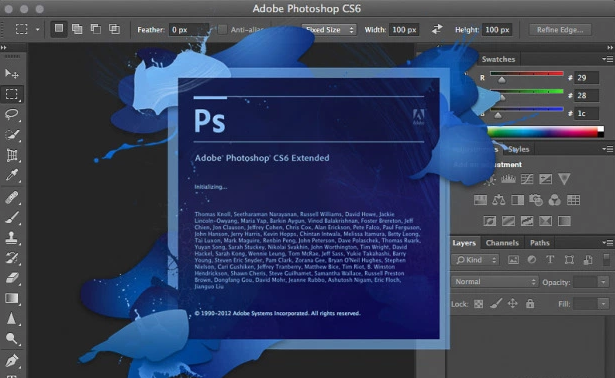Photos is a photo management and editing app developed by Apple Inc. Its great characteristics are simplicity and ease of use. Even its name is a beautiful and direct indicator of its usage. This Mac photo editing software has been available since 2015 for OS X Yosemite 10.10.3, and since 2016 for tvOS v.10. Best 10 Photo Editing For Mac tested by reviewers. We researched and found the easiest for beginners. Check out our top pick. The best iMac for photo editing. If you're one of those people who prefer a desktop computer to a light and portable laptop, a 27-inch iMac with a 5K Retina display is your best bet for Mac photo editing. The new 2020 release equips the technological giant with a nano-texture glass, bringing the photo editing experience up to a new level.
Mac Tips
Mac TipsUpdated: September 04, 2020 | 13 min readBefore we start
Regardless of the device you choose, you need to keep it in perfect condition to help it cope with any large and resource-intensive apps, such as photo editing.
MacKeeper allows you to optimize your Mac's performance—it will remove any junk and ensure you experience the best use of your Mac.
Try MacKeeper for yourself today!
You might think that photo editing doesn't require any special hardware. However, if you're an experienced photographer, you know that not all computers can pull off the necessary software such as Adobe Photoshop.
But what about Macs? As with any other brand, some Apple computers are more fit for the purpose than others. Download samsung software for android. In this article, we look at the best Macs for photographers, compare their characteristics, and discuss the most popular photo editing software.
Here's a short list of the best MacBooks for photography:
- Ultimate best:MacBook Pro 16-inch (2019) or 13-inch (2020)
- Best budget: MacBook Air (2020)
- Best desktop:27-inch iMac with 5K Retina Display (2020)
Why use a Mac for photo editing?
Apple products are well-known for their powerful hardware, loved by many creators—from photographers and filmmakers to app developers.
All of the high-end components of a MacBook are packed into a light-weight body, making it portable and easy to carry around at all times. Not to mention the exceptionally long battery life that provides the opportunity to work away from a charging port for an entire day. As for iMacs, photographers can take advantage of the large screen size, superb resolution, and powerful multi-core i7 processors of these phenomenal computers.
Recommended system requirements
We've prepared a list of key things you need to look out for when buying your best Mac for photo editing.
For the best photo editing experience, it is essential that you pick the best available display. Ideally, you need a large, high definition Retina screen. IPS technology, which is incorporated in all MacBook and iMac models post-2012, makes images brighter and bolder and guarantees accurate color reproduction. A Retina display with a substantial pixel density is what you're looking for—regardless of the size of the project you're working on.
Photo editing software is rather demanding—especially if you deal with high-resolution raw files and work with advanced effects in Photoshop or Lightroom. It's crucial that you invest in a powerful discrete graphics card—make sure your Mac has at least Intel UHD Graphics 617.

Don't forget about RAM and storage space—you'll need a lot of those. We recommend at least 8GB of RAM and 500GB of internal SSD storage minimum. The more RAM you have, the faster and smoother your editing experience will be.
As a photographer, you know that you have to connect cameras, SD cards, and other peripherals to your Mac on a regular basis. Therefore, the number and type of ports on a computer is an important aspect when making a choice. Think about the camera input and the type of cable you use for your camera when selecting a Mac, and don't forget about the SD cards.
Finally, consider the portability of your device. Whether photography is an occupation or a hobby for you, it's a dynamic activity—you'll need to move around a lot even if you have your own studio. A laptop is in advantage over a desktop computer due to its low weight combined with impressive components. Mac laptops have pixel-perfect screens with excellent color support. Additionally, the wide contrast of the Retina displays will keep highlights and shadow detail consistently visible.
You'll probably need to free up some space to install a photo editing app—they're usually pretty big.
To clean junk and useless apps from your Mac, just follow these 3 easy steps—install MacKeeper, scan your device, and delete rubbish!
Let's start right away.
The best MacBooks for photographers in 2020
We talked to professional photographers to our team, analyzed all the specs and evaluated reviews to compile a list of the most preferred choices for photo editing. Here's what we've got:
MacBook Pro for photo editing
The new 13-inch MacBook Pro 2020 is one of the best Apple creations yet, featuring the Magic Keyboard, a Touch Bar, and Touch ID for utmost efficiency and productivity. With the Touch Bar innovation that came in 2018, it got easier to work in Photoshop as there are a number of useful shortcuts you won't find on any other laptop. These include a selection of your favorite photos, quick addition to albums, and editing straight in the Photos app, among other handy functions.
The baseline dual-core laptop can be equipped with a 4.5GHz 10th generation quad-core i7 processor and 32GB of RAM, which is twice the usual amount for a 13-inch MacBook Pro. This makes editing in Photoshop a seamless process with up to 50% speed improvement. The Iris Plus graphics card delivers 80% faster processing of threaded filters.
The display of the MacBook uses True Tone technology with 500 nits brightness and as much as 25% more colours than sRGB, which is ideal for accurate image representation. You can incorporate up to 4TB of SSD storage—an incredible space to store your photographs. Finally, four Thunderbolt 3 ports are available to connect your peripherals. All of these components are packed in just 1.4 kilos.
In addition to the 13-inch model, photographers must consider the 16-inch MacBook that came out in 2019 and is due to be updated soon. It's a larger, more powerful and more expensive device that will fit those hungry for better components and a larger screen, still packed in a relatively small frame.
MacBook Air for photo editing
MacBook Air is the cheapest among all Apple laptops with Retina display. It can become your favorite photo editing assistant. Being the most portable Mac laptop with the longest battery life, MacBook Air is a great option for photographers who are always on the run.
The base model costs as little as $999, although the specs of such a laptop won't satisfy the needs for bigger projects. The processor is 10th Gen Core i3—we recommend at least i5. RAM of 8GB is substantial with 256GB of SSD storage on top of it. Finally, the laptop is equipped with Intel Iris Plus Graphics. All of this is packed in just 1.27 kilos.
The computer can have several upgrades. The first would increase the cost to $1,299, but the specs are much better: 1.1GHz quad-core i5 CPU and 512GB of SSD storage among the ones that are different. The most customized MacBook Air would come at $2,249 with a 10th Gen core i7 CPU, 16GB RAM and 2TB SSD. One would argue that it's easier to just buy a MacBook Pro.
The slim laptop doesn't allow a lot of room for ports—you'll only find two Thunderbolt 3 ports as opposed to four in a 13-inch MacBook Pro. Thus, if you want to connect more than just a camera and a pair of headphones, you might need to invest in a USB hub.
The display of an Air is quite rewarding. The 13.3-inch 2560x2600 panel does create size limitations, but it reaches 113% of the sRGB gamut and outstands the nit average, having an impressive 382 nits.
The best iMac for photo editing
If you're one of those people who prefer a desktop computer to a light and portable laptop, a 27-inch iMac with a 5K Retina display is your best bet for Mac photo editing. The new 2020 release equips the technological giant with a nano-texture glass, bringing the photo editing experience up to a new level.
The powerful Coffee Lake processor of up to 10 cores can handle pretty much anything you throw its way. You're also presented with up to 126GB of on-board RAM and terabytes of SSD storage space.
How to Optimize your Mac for Photo Editing?
Photo editing is an intricate art and it's also one of the most resource-consuming tasks you can do on a Mac. Lack of free space, plenty of duplicated photos scattered all over the folders may hamper your photo editing process.
Whenever you get the beach ball icon on your screen, it's high time to clean up your RAM memory. The Memory Cleaner feature in MacKeeper will easily do that for you. Simply run this tool when working on your photos to enhance the performance of your photo-editing software. And speaking about such software, Update Tracker will keep your photo editing apps updated at all times.
As a photographer you do need a lot of storage space to store images after photoshoots. Not to spend extra money on additional gigabytes, you can get rid of photo duplicates. Use Duplicates Finder to scan for copies and check how much space can be reclaimed! Besides duplicates, such files as caches, logs, apps leftovers, and items sent to Trash but still not deleted from there can be the reason for lack of space. Delete these items with one simple feature—that is Safe Cleanup!
Conclusion
Macs have become exceedingly popular among photographers. Most of all it is because they are powerful machines with outstanding color accuracy. Their portability and long battery life are distinguished among all creatives. But let's not forget about the exceptionally aesthetically pleasing design of every Apple device—any photographer is strongly receptive of beauty and will definitely find them exceptionally attractive.
If you're still unsure about the device you should choose—download MacKeeper and contact our tech experts.
They'd love to help you choose the best Mac to suit you. In addition, they can share their top tips on how to keep your Mac clean and optimized.
